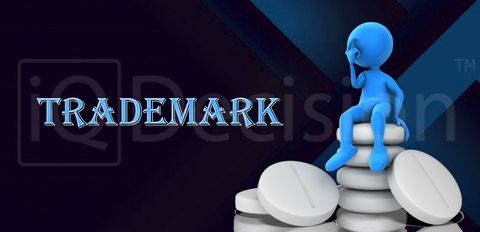Due to the lack of knowledge of European trademark registration laws, pharmaceutical companies often fall into disrepute. If a pharmaceutical company intends to register a trademark in the European Union, then they should carefully study the Trademark Law so as not to rush to submit an application for trademark registration.
The EU law states that if a trademark has not been entered into genuine use within five years in the EU, and there are reasons for not using it, this registration can be canceled. Having registered a trademark, the copyright holder is obliged to use it to individualize their goods (works or services). Otherwise, the legal protection of a trademark may be terminated ahead of schedule, and the rights to it shall be transferred to another person more interested in its use.
About how the company can achieve the early termination of legal protection of another's trademark, in which cases the court recognizes the plaintiff as interested in the early termination of legal protection of the trademark, and what circumstances should be addressed when acquiring the rights to a trademark, please read the material below.
Genuine Use Only
EU Law on trademarks states that genuine use of a trademark should relate to goods or services that have already had the commercial use of the mark in the market. What about clinical trials? Here lies a pitfall, because, by law, clinical trials are not aimed at the market for goods, that is, it is only a preparation, but not a real use.
At one time, such a pitfall came across the Viridis pharmaceutical company when it filed an application to register the trademark of a medication intended for the treatment of multiple sclerosis which applies to "pharmaceuticals and medical supplies." After some time, Hecht-Pharma applied for the recall of this trademark. From an economic point of view, a trademark is a monopoly and provides its owner with advantages over competitors who are forbidden to use the trademark similar to another trademark in relation to goods and services protected by the trademark. If the holder does not use his trademark for its intended purpose (does not sell goods and / or provide services), then another person who confirms the conduct of activities in this area has the right to apply for such a trademark.
Viridis, in its turn, appealed to the EUIPO Appeals Board. When considering the case in court, it was argued that the use of the trademark was related to clinical trials, and therefore did not prove genuine use.
Beyond Will
There are many good reasons for not using a trademark. Such reasons include circumstances that arise regardless of the will of the trademark holder. Among these are import and other restrictions imposed by the states on goods or services, including clinical trials when you cannot predict the result. The Appeals Board found that the obstacle (a clinical trial that did not allow Viridis to obtain permission to sell in the EU) was not dependent on the will of Viridis.
Following an unsatisfied appeal, the General Court filed a final appeal with the Court of Justice of the European Union (CJEU), which made its decision. Viridis claimed that a five-year period of non-use is insufficient for the pharmaceutical sector. However, the response was that the five-year term is applicable to all industries, and therefore this argument was considered ineffective.
When It's Too Early
To register a trademark in the EU was a decision by Viridis, which was too hasty because at that time it was not clear whether the clinical trial would be successful or not. Meanwhile, it happened so that the company failed to attract sufficient investment, which was why clinical trials have not been completed. In result, the appeal was dismissed. Finally, it was decided that each case would be examined on the merits.
This story illustrates how important it is for trademark owners in the pharmaceutical sector to apply for trademark registration only when you are 100 per cent sure you’re your clinical trials will be completed. After testing, you can get permission to sell in the EU for 5 years.
Conclusion
When considering the early termination of the TM registration, first of all, you need to pay attention to the following aspects of such termination:
- The concept of "non-use / use" in terms of litigation for early termination;
- The period of non-use is necessary to start the procedure of early termination;
- Good reasons for non-use and their legal justification.
If you want to register trademarks for pharmaceutical products in the European Union, obtain a license to promote a trademark in the EU, protect the rights of your company’s TM, you can first consult with qualified lawyers of our company to protect your business from unforeseen legal conflicts. Contact us using the form below or in any other convenient way.

















